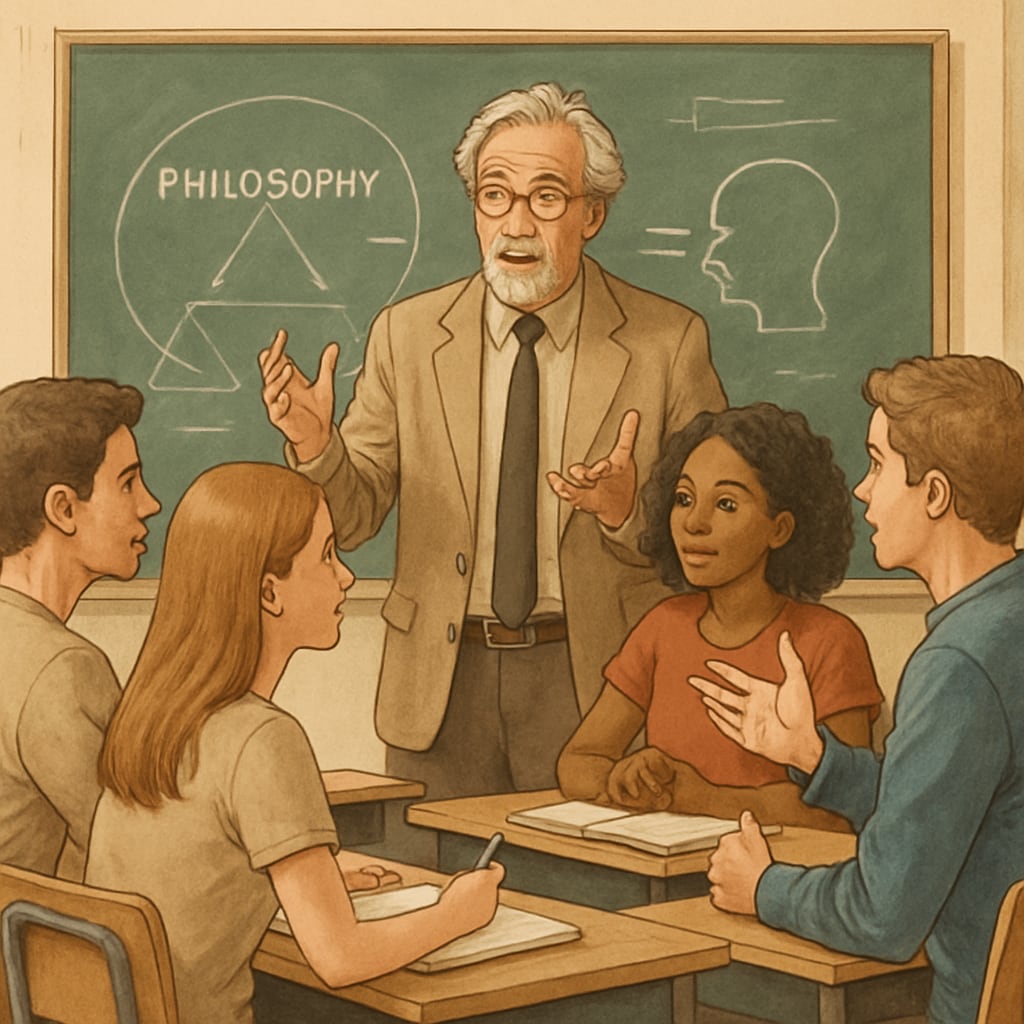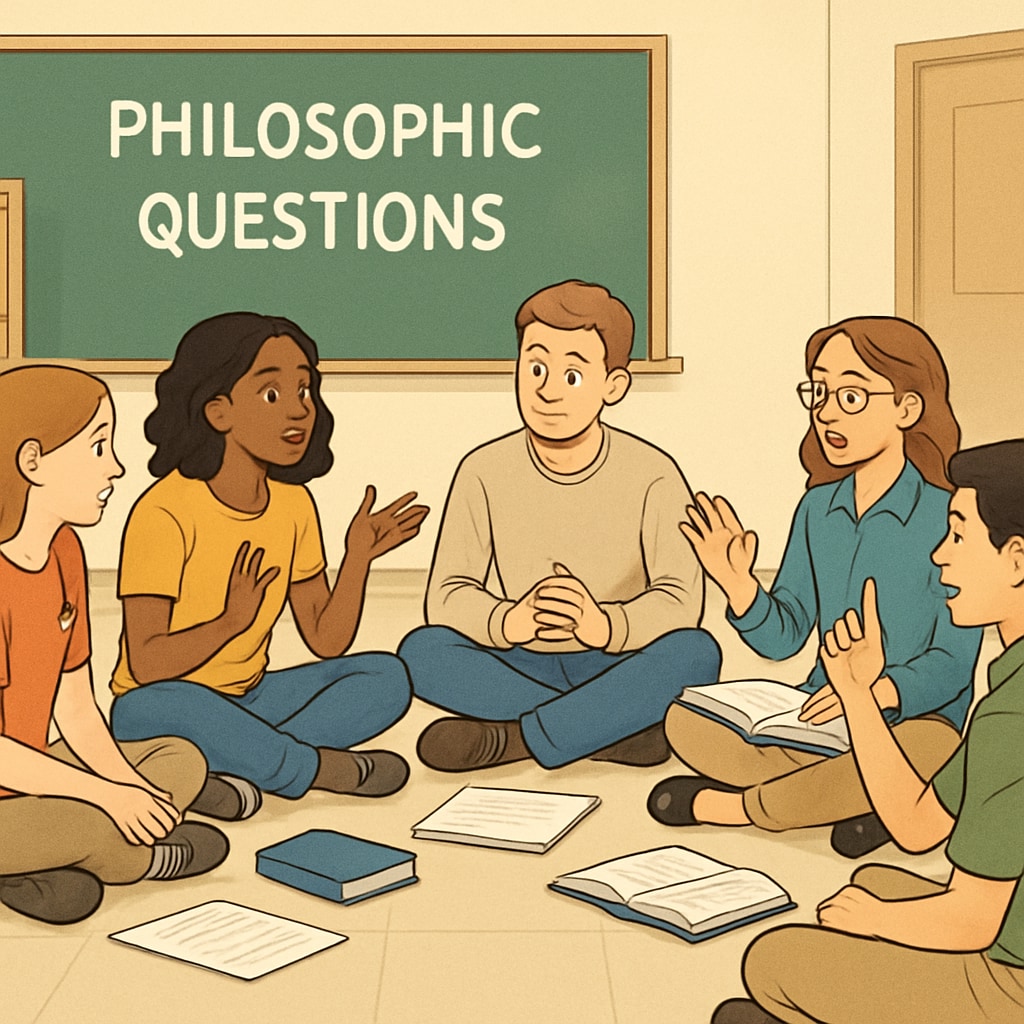The “Philosophy Teachers, Social Experiment, Volunteers” initiative is a groundbreaking project designed to bring philosophical thinking into K12 education. This experiment seeks to recruit philosophy educators from colleges and universities as volunteers to introduce students to the art of reasoning, critical thinking, and ethical inquiry. By engaging young learners in philosophical discourse, the program aims to enhance their ability to navigate complex challenges in an ever-changing world.

Why Philosophy Matters in K12 Education
Philosophy has long been regarded as the foundation of critical thinking, ethical reasoning, and intellectual exploration. However, it is often absent from primary and secondary education. By incorporating philosophical practices into K12 classrooms, this social experiment seeks to fill this gap, enabling students to think more deeply about themselves, society, and the world.
For example, introducing concepts such as Socratic questioning or moral dilemmas into lessons encourages students to analyze different perspectives and develop well-rounded opinions. These skills are invaluable for their future academic and professional endeavors.
Key benefits include:
- Improved critical thinking and problem-solving abilities
- Enhanced communication and debate skills
- Greater understanding of ethics and social responsibility

How Philosophy Teachers Can Participate
Philosophy teachers who wish to volunteer for this social experiment can contribute by designing age-appropriate lesson plans, leading classroom discussions, and mentoring students. The program encourages educators to create interactive experiences, such as debates, role-playing scenarios, and hands-on activities that make philosophy accessible and engaging for young learners.
In addition, participating teachers will have the opportunity to collaborate with K12 educators to tailor philosophical content to fit existing curriculums. This partnership ensures that philosophy complements rather than disrupts traditional subjects.
To learn more about the relevance of philosophy in education, visit Philosophy on Britannica.
Building a Community of Philosophical Thinkers
This initiative also aims to build a network of philosophical thinkers across schools, universities, and communities. By fostering dialogue between teachers, students, and parents, the program encourages broader societal engagement with philosophical ideas.
Furthermore, the social experiment provides a platform for philosophy teachers to share their expertise while making a meaningful impact on K12 education. As a result, students not only gain academic skills but also develop wisdom and judgment to face the complexities of modern life.
For additional resources on philosophy in education, check out Education in Philosophy on Wikipedia.
Readability guidance: Short paragraphs and bullet points summarize key ideas. Transition words like “however,” “for example,” and “as a result” ensure smooth flow. Active voice predominates, with minimal use of passive constructions.


